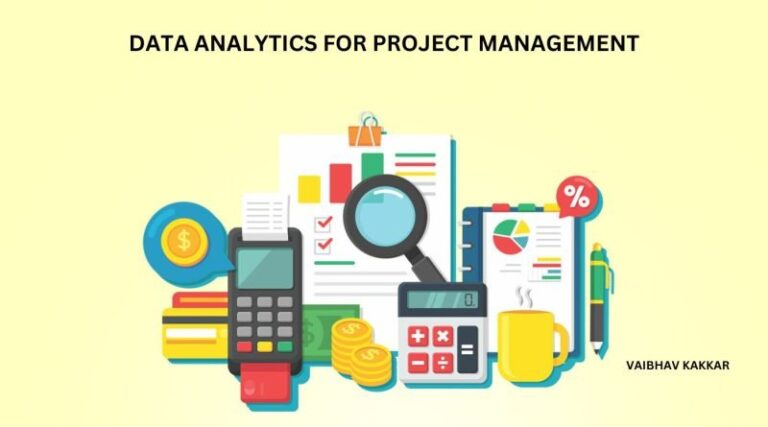How NetSuite Consultants Ensure Data Security and Compliance with Industry Regulations
Data security and regulatory compliance are paramount. Companies operating across industries must safeguard sensitive data from potential breaches and ensure they are compliant with various industry-specific regulations such as GDPR, HIPAA, SOX, and PCI-DSS. NetSuite, a leading cloud-based Enterprise Resource Planning (ERP) solution, offers robust security features and compliance tools to help businesses meet these requirements.
NetSuite consultants play a critical role in implementing, configuring, and optimizing these security measures to ensure that businesses using NetSuite are protected against security threats and remain compliant with industry regulations. This article provides a comprehensive guide on how NetSuite consultants ensure data security and regulatory compliance.
1. Understanding Industry-Specific Regulations
Before diving into the technical aspects, a NetSuite consultant needs to understand the specific regulatory requirements of the business they are serving. Different industries are governed by different regulations, and failing to comply can lead to significant legal and financial repercussions.
- GDPR (General Data Protection Regulation) governs data privacy and protection for businesses operating in or serving customers within the European Union.
- HIPAA (Health Insurance Portability and Accountability Act) applies to businesses handling sensitive patient data in the healthcare industry.
- SOX (Sarbanes-Oxley Act) mandates strict financial reporting and internal controls for public companies in the U.S.
- PCI-DSS (Payment Card Industry Data Security Standard) requires businesses that process credit card transactions to meet specific security standards.
NetSuite consultants must stay up-to-date with these regulations and understand how to configure NetSuite to meet the required standards.
2. Setting Up User Access Controls
One of the most critical aspects of data security is controlling who has access to sensitive information. NetSuite allows for granular control over user permissions through its role-based access control system.
- Role-Based Access Control (RBAC): NetSuite consultants work with businesses to define specific roles within the organization and assign permissions based on job responsibilities. This minimizes the risk of unauthorized access to sensitive data. For example, only authorized personnel, such as financial managers, may have access to financial reports, while customer service representatives may have limited access to customer data.
- Two-Factor Authentication (2FA): NetSuite supports two-factor authentication to add layer of security when users log in. Consultants enable 2FA to ensure that only verified users can access the system, even if their login credentials are compromised.
- Audit Trails: Consultants set up audit trails to log and track user activities within the system. This is critical for compliance with regulations such as SOX, which requires monitoring and documentation of changes to financial data. These logs allow businesses to identify and respond to suspicious activities quickly.
3. Data Encryption and Secure Storage
Another key responsibility of NetSuite consultants is to ensure that sensitive data is encrypted and securely stored. NetSuite provides built-in encryption features for data protection, both at rest and in transit.
- Encryption at Rest: Data stored in NetSuite databases is encrypted using industry-standard encryption protocols, such as AES-256. Consultants enable this feature to ensure that sensitive data is protected even if the storage medium is compromised.
- Encryption in Transit: All data transmitted between the user’s browser and the NetSuite platform is encrypted using Transport Layer Security (TLS). This prevents unauthorized interception of data during transmission. Consultants configure NetSuite to enforce the latest TLS protocols and disable older, insecure protocols.
- Data Masking: Consultants may configure data masking for fields containing personally identifiable information (PII) or sensitive financial information. This feature allows users to view only partial data (e.g., displaying only the last four digits of a credit card number), minimizing exposure of sensitive information.
4. Implementing Data Retention Policies
Data retention and deletion policies are crucial for businesses to comply with data protection regulations like GDPR. NetSuite consultants help businesses set up automated processes to manage data retention and deletion securely.
- Data Retention Periods: Consultants work with businesses to define appropriate data retention periods based on industry regulations. For instance, financial data may need to be retained for a specific number of years under SOX, while customer data must be deleted after a certain period under GDPR.
- Data Deletion and Anonymization: NetSuite consultants configure processes to automatically delete or anonymize data after the retention period has expired. This ensures that businesses do not hold onto unnecessary or outdated data, which reduces the risk of non-compliance with regulations like GDPR’s “right to be forgotten.”
5. Customizing Security Settings and Workflows
In addition to default security settings, NetSuite consultants can customize workflows to meet specific security requirements of a business.
- Custom Workflows for Data Approval: Consultants design and implement custom workflows to automate approval processes for sensitive data changes, such as altering financial records or modifying customer data. For example, any changes to vendor payment details can trigger an approval process requiring multiple sign-offs, reducing the risk of fraud.
- Segregation of Duties: Consultants enforce segregation of duties (SoD) by customizing roles and workflows. For instance, the person who initiates a transaction should not be the same person who approves it. This separation of duties is crucial for preventing internal fraud and is a key requirement for SOX compliance.
6. Backup and Disaster Recovery Planning
Ensuring the integrity and availability of data in the event of a disaster or system failure is critical for both security and compliance. NetSuite offers built-in disaster recovery mechanisms, but consultants play a role in setting up and optimizing these systems.
- Regular Backups: NetSuite automatically backs up data, but consultants work with businesses to ensure that the frequency and storage locations of backups meet regulatory requirements. For instance, certain industries may require that backups be stored in specific geographic locations.
- Disaster Recovery Testing: Consultants periodically test disaster recovery plans to ensure that they can restore critical systems and data quickly in the event of a system failure or breach. This is essential for maintaining business continuity and compliance with regulations such as PCI-DSS, which require documented disaster recovery plans.
7. Data Security Audits and Compliance Monitoring
Once security measures are in place, ongoing monitoring and audits are essential to ensure that the system remains secure and compliant.
- Security Audits: NetSuite consultants help businesses perform regular security audits to identify vulnerabilities or gaps in their security posture. These audits may involve reviewing user access controls, data encryption, and system configurations to ensure they are up to date with the latest best practices.
- Compliance Monitoring: Consultants set up compliance monitoring tools and dashboards within NetSuite to track key metrics and generate reports for regulatory agencies. For example, they can configure NetSuite to automatically generate SOX-compliant financial reports or provide evidence of GDPR compliance.
- Penetration Testing: In some cases, consultants may work with third-party security firms to conduct penetration testing on the NetSuite environment. This helps identify any potential vulnerabilities that could be exploited by attackers and allows the business to address them proactively.
8. User Training and Awareness
Even the best security features are ineffective if users are not trained properly. NetSuite consultants play a vital role in educating users on security best practices and ensuring they are aware of the compliance requirements relevant to their roles.
- Security Awareness Training: Consultants organize training sessions to educate users on secure login procedures, recognizing phishing attempts, and reporting suspicious activity. This training helps prevent common security breaches such as credential theft or social engineering attacks.
- Compliance Workshops: For businesses operating in highly regulated industries, consultants provide workshops that explain the specific compliance requirements and how NetSuite is configured to meet those requirements. This ensures that users understand the importance of following proper procedures when handling sensitive data.
Summary
NetSuite consultants are essential to ensuring that businesses maintain strong data security practices and remain compliant with industry regulations. By setting up robust user access controls, encrypting data, automating compliance workflows, and regularly auditing security configurations, consultants help businesses protect sensitive information and meet regulatory requirements. Their expertise enables organizations to confidently operate in a secure, compliant environment, reducing the risk of data breaches, regulatory fines, and reputational damage.
Through proactive measures like implementing disaster recovery plans, monitoring for compliance, and educating users on security best practices, NetSuite consultants help organizations optimize both security and compliance efforts, allowing them to focus on their core business objectives.
Ensure seamless data encryption and regulatory compliance with NetSuite’s ERP—learn more at Thrill Rise!






